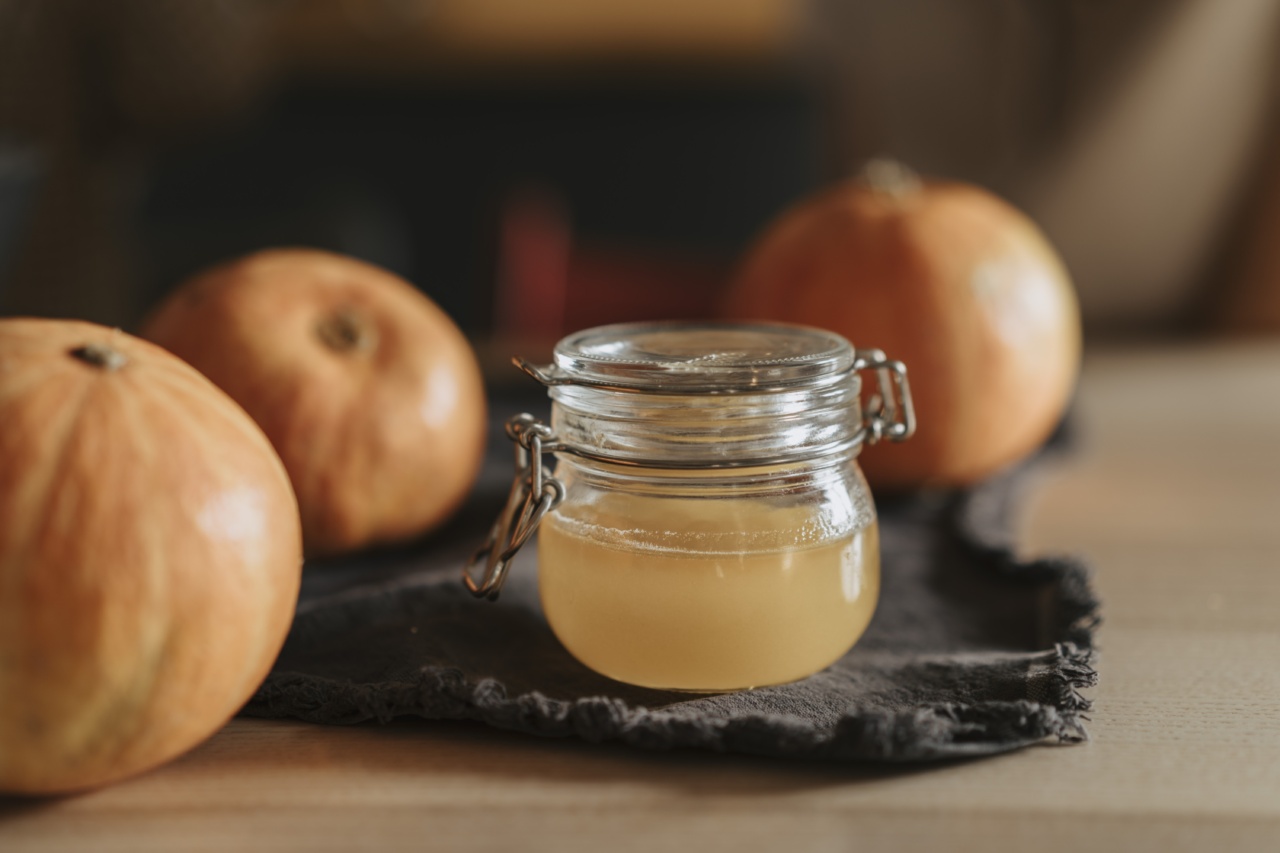Acne is a common skin condition that affects millions of people worldwide. It can be frustrating and embarrassing, leading many individuals to search for effective treatment options.
While there are numerous over-the-counter and prescription medications available, some people turn to natural remedies for relief. One such remedy that has gained popularity is apple cider vinegar.
What is apple cider vinegar?
Apple cider vinegar is a type of vinegar made from fermented apple cider. It is created by crushing apples and extracting the liquid. This liquid is then combined with bacteria and yeast, which ferment the sugars in the juice, turning them into alcohol.
The alcohol is further fermented into acetic acid, giving the vinegar its distinctive sour taste and tangy aroma.
How does apple cider vinegar help with acne?
Apple cider vinegar contains several beneficial properties that make it an effective treatment for acne. Here are some ways in which it can help:.
1. Antibacterial properties
Apple cider vinegar has natural antibacterial properties that can help combat acne-causing bacteria. Propionibacterium acnes, a type of bacteria, is often responsible for acne breakouts.
The acetic acid in apple cider vinegar can kill this bacterium, reducing inflammation and preventing further eruptions.
2. Balancing pH levels
The pH levels of our skin play a crucial role in maintaining its health and preventing acne. An imbalance in pH can lead to excessive oil production, clogged pores, and breakouts.
Apple cider vinegar helps balance the skin’s pH, creating an environment that is unfavorable for acne-causing bacteria.
3. Exfoliation
Regular exfoliation is essential for removing dead skin cells, unclogging pores, and promoting healthy skin turnover.
Apple cider vinegar contains natural acids, such as alpha-hydroxy acids (AHAs), which gently exfoliate the skin, leaving it smoother and more radiant. This can help prevent clogged pores and reduce the occurrence of acne.
4. Anti-inflammatory effects
Acne is often accompanied by inflammation, which can worsen redness, swelling, and the overall appearance of blemishes. Apple cider vinegar has anti-inflammatory properties that help soothe inflamed skin and reduce redness.
This can lead to a calmer complexion and a faster healing process.
How to use apple cider vinegar for acne?
When using apple cider vinegar as a natural remedy for acne, it is essential to dilute it to prevent any adverse effects on the skin. Here’s a step-by-step guide on how to use it effectively:.
1. Choose the right apple cider vinegar
Opt for raw, unfiltered, and organic apple cider vinegar to ensure you’re getting the maximum benefits.
Look for a product that contains “the mother,” which is a cloudy substance formed during fermentation and contains beneficial enzymes.
2. Dilute the vinegar
Mix one part apple cider vinegar with three parts water to create a diluted solution. This helps prevent skin irritation. You can adjust the ratio based on your skin’s sensitivity, starting with more water if needed.
3. Cleanse your face
Before applying the diluted apple cider vinegar, cleanse your face gently with a mild cleanser to remove any dirt, oil, or makeup residue. Pat your skin dry with a clean towel.
4. Apply with a cotton pad
Soak a cotton pad or ball in the diluted apple cider vinegar solution and apply it to the affected areas of your skin. Be careful to avoid the eye area, as the vinegar can cause irritation.
Let it sit for a few minutes before rinsing it off with lukewarm water.
5. Moisturize afterwards
Apple cider vinegar can be drying to the skin, so it’s important to follow up with a gentle moisturizer to maintain the skin’s hydration. Look for oil-free, non-comedogenic moisturizers to avoid clogging the pores.
Potential side effects of apple cider vinegar for acne
While apple cider vinegar can be an effective remedy for acne, it’s essential to consider potential side effects and use it with caution. Here are a few things to keep in mind:.
1. Skin irritation
Undiluted apple cider vinegar is highly acidic and can cause skin irritation, redness, and even burns. Always dilute it before applying it to your skin and perform a patch test on a small area before using it on larger areas.
2. Increased sensitivity to sunlight
Some individuals may experience increased sensitivity to sunlight after using apple cider vinegar topically. It’s important to apply sunscreen and protect your skin from excessive sun exposure, especially when using this remedy.
3. Allergic reactions
While rare, some individuals may be allergic to apple cider vinegar or its components. If you notice any signs of an allergic reaction, such as itching, swelling, or hives, discontinue use and seek medical advice.
When to consult a dermatologist?
If your acne persists or worsens despite using apple cider vinegar or any other remedies, it’s advisable to consult a dermatologist.
They can assess your skin condition, recommend appropriate treatments, and help you develop a personalized skincare routine.
Conclusion
Apple cider vinegar can serve as a natural and cost-effective remedy for acne.
Its antibacterial and anti-inflammatory properties, along with its ability to balance pH levels and gently exfoliate the skin, make it a popular choice among those seeking relief from acne breakouts. However, it’s important to remember that everyone’s skin is unique, and results may vary. If you decide to try apple cider vinegar for acne, do it with caution, and discontinue use if any adverse reactions occur.
Always consult with a dermatologist for personalized advice and guidance on managing acne.






























